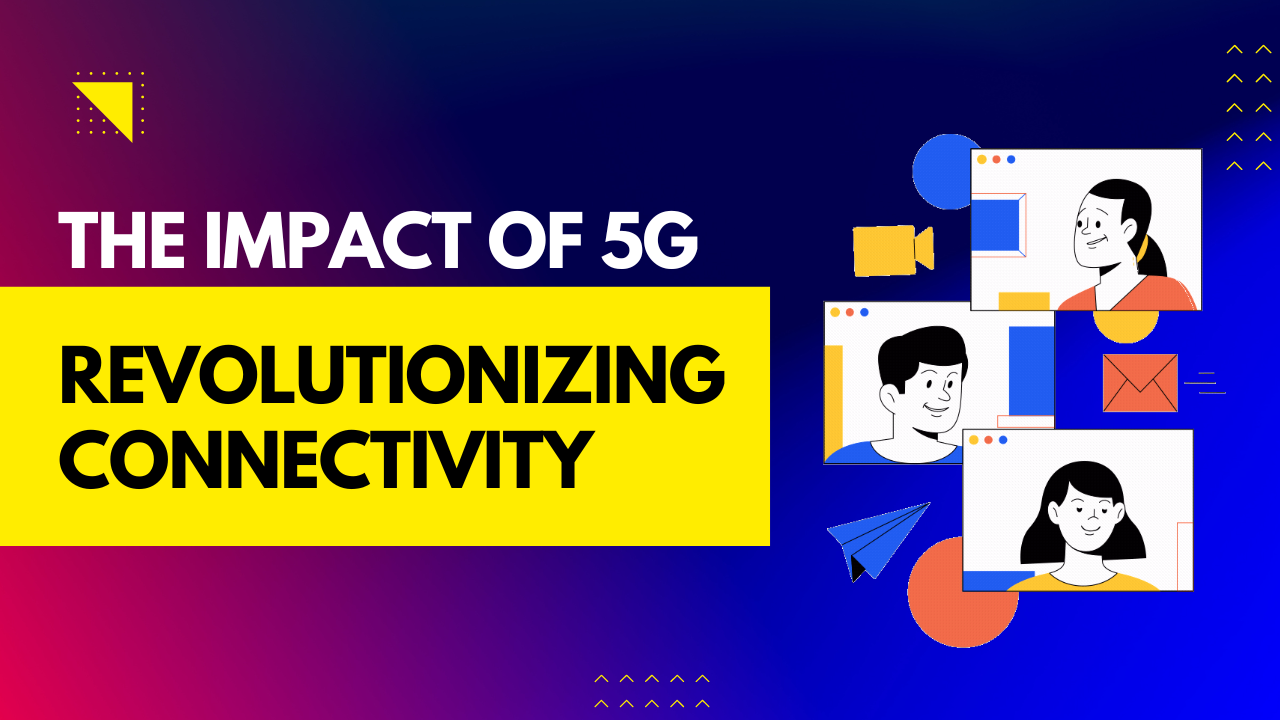The advent of 5G technology marks a pivotal moment in the evolution of communication and connectivity. As the fifth generation of wireless technology, 5G promises to revolutionize how we interact with the digital world, offering unprecedented speeds, ultra-low latency, and the ability to connect a vast number of devices simultaneously. This leap in technology is not just an incremental upgrade but a transformative force that will reshape industries, drive innovation, and redefine our daily lives. In this article, we will explore the multifaceted impact of 5G, from its technological advancements to its broader implications for society and the economy.

The Technological Advancements of 5G
At its core, 5G technology represents a significant improvement over its predecessor, 4G LTE. The most notable advancements include increased data transfer speeds, reduced latency, and enhanced capacity for connecting devices.
- Increased Data Transfer Speeds: One of the most publicized features of 5G is its incredible speed. While 4G networks offer download speeds of up to 1 Gbps, 5G can potentially reach speeds of 10 Gbps or more. This increase in speed is not just about downloading movies faster; it enables the seamless streaming of high-definition video, supports advanced applications like augmented reality (AR) and virtual reality (VR), and enhances the overall user experience.
- Ultra-Low Latency: Latency refers to the time it takes for data to travel from one point to another. 5G dramatically reduces latency to as low as 1 millisecond, compared to 20-30 milliseconds with 4G. This ultra-low latency is crucial for real-time applications, such as autonomous vehicles, remote surgery, and industrial automation, where even the slightest delay can have significant consequences.
- Massive Device Connectivity: 5G is designed to support the Internet of Things (IoT) on a massive scale. Unlike 4G, which struggles with maintaining stable connections in densely populated areas, 5G can handle up to one million connected devices per square kilometer. This capability will be essential as smart cities, connected homes, and other IoT-driven environments become more prevalent.
Transforming Industries
The impact of 5G extends far beyond faster internet speeds; it is poised to transform a wide range of industries, driving innovation and creating new business models.
- Healthcare: One of the most promising applications of 5G is in the healthcare sector. With its high speed and low latency, 5G can enable remote surgeries, where specialists can operate on patients in different locations using robotic arms controlled in real time. Additionally, 5G will facilitate the development of telemedicine, allowing doctors to diagnose and treat patients remotely with the help of wearable devices and real-time data transmission.
- Transportation: The transportation industry is set to undergo significant changes with the introduction of 5G. Autonomous vehicles, which rely on real-time data for navigation and decision-making, will benefit immensely from 5G’s low latency. This technology will also support vehicle-to-vehicle (V2V) and vehicle-to-infrastructure (V2I) communication, improving traffic management, reducing accidents, and paving the way for smarter cities.
- Manufacturing: 5G will play a crucial role in the future of manufacturing, enabling smart factories that leverage IoT, AI, and robotics. With 5G, manufacturers can implement real-time monitoring and control systems, reducing downtime and improving efficiency. Additionally, 5G will support the development of collaborative robots (cobots) that can work alongside human workers, enhancing productivity and safety.
- Entertainment and Media: The entertainment industry is also set to benefit from 5G. The enhanced bandwidth and low latency will enable new forms of content consumption, such as immersive VR experiences and interactive live streaming. Moreover, 5G will support the creation of more complex and data-intensive content, driving innovation in gaming, film, and digital media.
The Societal and Economic Implications of 5G
Beyond its impact on specific industries, 5G will have profound societal and economic implications, influencing how we live, work, and interact with the world around us.
- Bridging the Digital Divide: One of the potential benefits of 5G is its ability to bridge the digital divide, providing high-speed internet access to underserved and remote areas. As 5G networks expand, they could bring connectivity to regions that have traditionally been left behind, enabling access to education, healthcare, and economic opportunities.
- Economic Growth: The deployment of 5G networks is expected to drive significant economic growth, creating jobs and boosting productivity across various sectors. According to a report by IHS Markit, the global 5G value chain could generate up to $3.5 trillion in output and support 22 million jobs by 2035. This economic impact will be felt across industries, from manufacturing and healthcare to entertainment and transportation.
- Security and Privacy Concerns: While 5G offers numerous benefits, it also raises new security and privacy challenges. The increased connectivity and data transfer capabilities of 5G create more opportunities for cyberattacks and data breaches. Additionally, the use of 5G in critical infrastructure, such as transportation and healthcare, means that any security vulnerabilities could have far-reaching consequences. As 5G networks are deployed, ensuring robust cybersecurity measures will be essential.
- Environmental Impact: The environmental impact of 5G is a topic of ongoing debate. On one hand, 5G can support the development of technologies that reduce energy consumption and promote sustainability, such as smart grids and efficient transportation systems. On the other hand, the increased energy demands of 5G networks and the production of new devices could contribute to environmental degradation. Balancing the benefits of 5G with its environmental impact will be a critical challenge.
Conclusion
The impact of 5G on connectivity and communication is nothing short of revolutionary. As this technology continues to roll out globally, it will unlock new possibilities, transforming industries, driving economic growth, and reshaping our everyday lives. However, the widespread adoption of 5G also presents challenges that must be addressed, from cybersecurity risks to environmental concerns. As we stand on the brink of this new era, it is essential to navigate these challenges carefully, ensuring that the benefits of 5G are realized while minimizing potential downsides. The future of connectivity is bright, and 5G is leading the way into a new world of possibilities.
